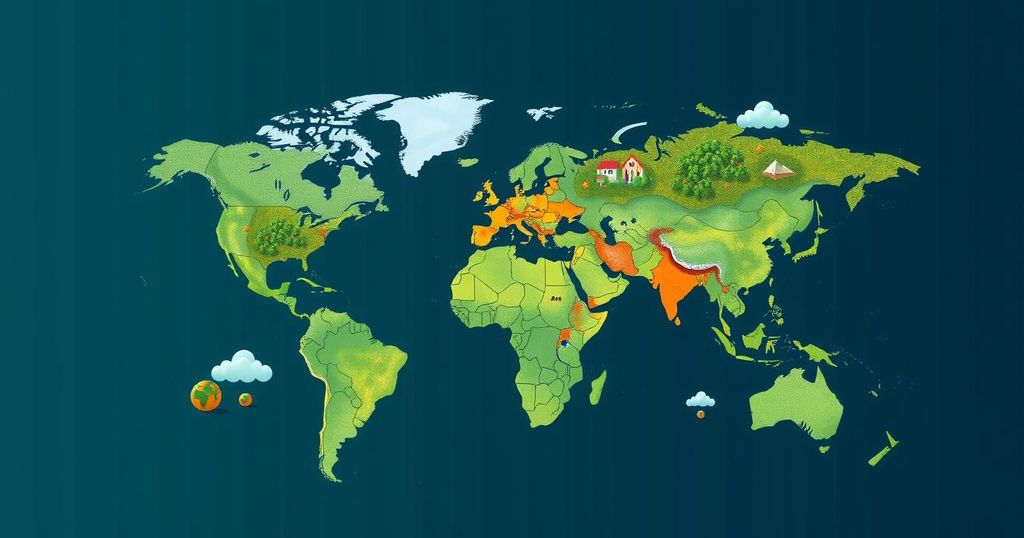International Court Reviews Legal Responsibilities of Major Polluters in Climate Action

The International Court of Justice is hearing arguments about the legal responsibilities of major polluters regarding climate change. This follows dissatisfaction from small island nations after COP29, where wealthy nations promised financial assistance deemed insufficient. Almost 100 countries are involved in the proceedings, seeking clarity on legal obligations and potential consequences for inaction.
The International Court of Justice (ICJ) has commenced hearings regarding climate action, with particular focus on the responsibilities of major polluting nations in combating climate change. This session arises in response to discontent among small island nations following the recent COP29 climate talks in Azerbaijan, where affluent countries pledged financial support to poorer nations but failed to meet their comprehensive needs. Nearly 100 countries are presenting their oral arguments over a period of two weeks, seeking to clarify the legal obligations and penalties for nations that do not adequately address climate change.
The growing urgency of climate change has led to international discussions regarding the accountability of countries that contribute significantly to global carbon emissions. The COP29 conference in Azerbaijan concluded with a commitment of $300 billion annually by 2035 from wealthy nations to assist developing countries. Despite this, many nations have criticized the agreement for not addressing their immediate financial needs and lacking robust mechanisms to combat climate change effectively. The ICJ’s proceedings aim to assess the legal frameworks surrounding these obligations, as skepticism about the efficacy of international climate talks continues to grow.
In conclusion, the hearings at the International Court of Justice present a critical opportunity for assessing the responsibilities of major polluting nations in addressing climate change. As small island nations and developing countries express disappointment with recent international agreements, the outcomes of this legal evaluation could have significant implications for future climate action and international cooperation. The proceedings will elucidate the enforceability of climate obligations and the repercussions of non-compliance among leading carbon emitters.
Original Source: www.eenews.net






